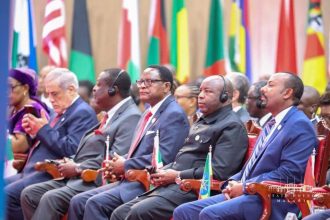Chanco FM amplifies climate change voices
Chanco Community Radio Station, also known as Chanco FM, has become a leading source of knowledge and solutions for climate change issues in Malawi.
With a primary focus on providing information about climate change adaptation, natural resource management and other developmental programmes, the station has played a crucial role in educating and inspiring the local community.
Established in July 2013 with an initial plan to cover a radius of 100 kilometres from its base in Zomba City, Chanco FM has surpassed its intended coverage area due to its powerful transmitters.
This expanded reach has provided opportunities for individuals and communities beyond the designated coverage zone.
Sakina Kaima Majawa, the acting station manager, highlights how the station’s dedication to climate change coverage has set it apart from over 50 other community radio stations in Malawi.

“We are unique because we are the first radio station to be involved in environmental management and climate change adaptation broadcasting. Sixty percent of our content is about climate change and natural resource management. Climate change is a major issue in our coverage area, but when it was a new phenomenon, most journalists and radio stations were not interested in covering it,” she says.
Majawa says droughts and floods often afflict people in the station’s coverage area, leading to either insufficient food production or the destruction of crops and animals due to flash floods.
To address these challenges, the station broadcasts several programmes promoting environmental care, such as tree planting, regeneration, and using clean energy for cooking to discourage charcoal usage, which contributes to deforestation in Malawi.
Notable programmes include Zaulimi (agricultural issues), Imvani za Kumudzi (The Village Voice) and Ulimi ndi Nyengo (Farming and Weather).
Listeners’ content
Chanco FM has also established and supported over 100 listener clubs that listen to programmes aired on the station. Majawa explains that these clubs contribute content the station then broadcasts
“As a result, people in the Lake Chilwa basin now adopt smart agriculture. They have also established committees that lead village-level communities to develop tree nurseries so that they have trees to plant every year. And whenever they do something, they can call listening clubs to record them so that other people should know and copy what they are doing,” says Majawa.
The radio’s commitment to climate change coverage has earned it numerous awards, including the Green Media House of the Year from the Association of Environmental Journalists of Malawi in 2017. Several journalists, including Majawa, have also received individual awards over the years, further recognising their contributions to climate change adaptation.
For example, this year, Majawa won the George Atkins Communication Award for Climate Change Adaptation. Additionally, Chanco FM has trained over 100 students from the University of Malawi and other learning institutions and community radio stations across the country.
One of the beneficiaries of the comprehensive training programmes at Chanco FM is Cecelia Chinseu, an intern who has gained valuable knowledge and practical experience in climate change and the media’s role in promoting sustainable development.
“I feel so fortunate to be a part of this team. As an intern, I have learned so much about climate change and the role the media can play in promoting sustainable development. It’s been a real eye-opener for me. Before I started working here, I didn’t really think about environmental issues very much. But now, I find myself thinking about them all the time. It’s made me more conscious of my own impact on the environment, and I’m trying to make changes in my own life to be more sustainable,” she said.
Powering Chanco FM
Another key factor contributing to the success of Chanco FM is its state-of-the-art equipment and high sound quality.
Winston Msukwa, the head of the technical section, emphasizes the importance of having top-quality equipment to deliver the best possible content consistently. The station recently replaced its previous sound console.
“Previously, we were using a sound console meant for public address systems. So, we replaced it with a broadcasting console from Broadcast Solutions in South Africa. We are currently using a D&R Airmate eight-channel mixer, which has two programmable phone hybrids and four channels for output to the mixer. The console is compatible with our WB broadcast digital transmitter from Italy, resulting in enhanced sound output,” he says.
However, the radio station faces frequency interference in some coverage areas, mainly due to the frequency reallocation exercise conducted by the Malawi Communications Regulatory Authority has assured that these interferences will likely cease by December this year, when it expects to conclude the frequency reallocation.—Redteach.pro





